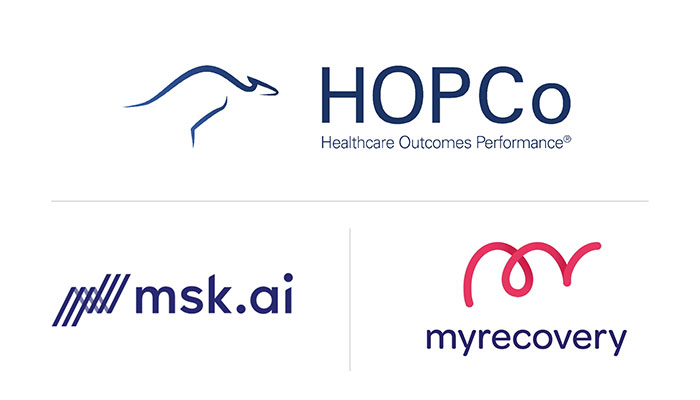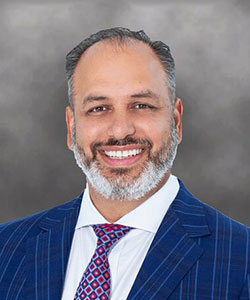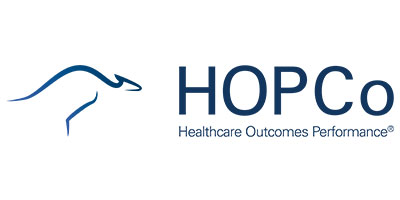1. The FHW platform will supposedly help HOPCo make a shift from volume-based to value-based care. Please give us a thorough understanding of it.
These tools can have multiple use cases depending upon the nature of the value-based care program an musculoskeletal practice or health system is involved in.
For instance, within procedure based bundle payment programs, readmissions, post acute care and complications drive the majority of costs. The msk.ai and myrecovery platforms utilize state-of-the-art artificial intelligence, motion capture, real-time patient feedback, remote patient monitoring and predictive analytics to track and report outcomes. This data allows physicians and providers to identify potential risks or complications and intervene before this happens, thus preventing readmissions.
For those who are involved in more complex programs, such as population health or condition based bundles, the mobile app includes multimodal algorithms that send instructions, recommendations, therapy protocols and tracking questions directly to the patient in real-time.
When these advanced technologies are combined with HOPCo’s existing claims analytics engines, clinical data sets and outcomes data, we can increase stakeholder engagement while driving improved patient outcomes.
2. Why was FHW’s innovative software given preference? How varied is it from the other technologies that are available today?
There were two aspects that distinguished the FHW platforms from the others we had looked into. The first was the platform’s capabilities to cover the entire spectrum of MSK care. Many other apps on the market were very good at measuring outcomes for joint replacement or spine. However, many risk-based programs cover the entirety of MSK care, encompassing over 26,000 ICD-10 codes. We wanted to avoid having multiple applications that were selective and instead wanted a comprehensive application. The FHW platforms were the only ones we found that had that capability already standardized.
The second aspect that made the FHW platform stand out was patient adoption. We had seen from their work in the UK just how convenient and effortless patients found this platform. It is important for an outcomes management platform to collect data, but patients must be willing to engage with the platform to make it successful. The myrecovery platform user experience was meticulously refined over the years and became the preferred application for many NHS trusts in the UK.
3. The Myrecovery platform by FHW has been pretty popular amongst patients. What are the changes that will occur now that HOPCo is also involved?
We look forward to increasing the interoperability of the platform with other parts of the HOPCo software suite. Today we have software that is specific to bundles, hospital operations, clinician performance, cuiltural fit, claims analytics, etc. To be able to create a single, fully integrated suite of tools is the goal.
4. Where do you see the predictive analytics capabilities moving, with both HOPCo and FHW having a fair understanding of it in their current positions? What are the transitions that can be expected in this arena?
Predicitve analytics is one of the most interesting areas in healthcare today. Many are now referring to its application as artificial intelligence. The use of AI to improve quality, reduce cost, improve the patient expectation through improved patient expectation management, site of care choice, and optimization will help drive more value in healthcare.
5. What makes both the myrecovery and msk.ai platforms so popular among patients?
The level of engagement that the platform allows for has made it popular among patients. Unlike other recovery based apps, it is not solely prerecorded video exercises and protocols but rather a real-time tool to track their progress and interact with their care team.
6. It is evident that the collaboration of HOPCo and FHW is going to be a win-win scenario for both. From the patients’ point of view, discuss the innovations that one can expect in the near future now that both are involved.
People like to track progress. Patients like “wins”. Think of checking how many steps you walked, your Apple health score, your Peloton readiness score, and even your sleep score. When one is dealing with health, getting immediate feedback is a must. Look at how continuous glucose monitors have revolutionized diabetes care. The environment that I see is one in which every participant in the care continuum for a patient is connected and available. That will revolutionize healthcare.
7. From HOPCo’s point of view, it has had great success in delivering value-based MSK care. What pushed it to go further beyond its forte and join hands with FHW?
Over the past decade, we have had sustained success in facilitating the shift from volume-based to value-based care. However, one of the most significant challenges continues to be the extraction and implementation of the meaningful outcomes data needed to succeed in value-based programs. There is certianly no lack of data within these programs, but they often live in disparate systems that do not integrate well. The driving force behind our acquisition of FHW’s applications was to create a platform were all meaninggul data was compiled into a single source that physicians could have at their fingertips and use to truly drive better clinical decisions and better outcomes.
8. Because of this partnership with FHW, please brief on the enhancements that will be made in the health systems as well as physician practices and payors.
Each of our MSK practice and health system partners are equipped with our claims analytics, clinical protocols and IT infrastructure. The addition of the FHW applications are another tool that can be added to this arsenal that helps track, monitor and improve outcomes.
9. Being a cross-nation deal, how long do you think it will take to see the transition and evidence-based development occuring when it comes to this collaboration?
One of the beauties of healthcare is that evidence based outcomes has no national boundaries. We may apply our knowledge differently, but ultimately, true north doesn’t change. Drive up quality and experience and bring down cost. That is the international language of value.
10. Short-term gains are one thing, but long-term ambitions are another. Where does this deal fit in when we talk about the latter?
As the national leaders in MSK value-based care, our goal is to continue to innovate and drive outcomes. Unquestionably, healthcare is becoming more consumer-focused and patients continue to demand convenient technology-enabled apps that provide more meaningful engagement and communication with their providers around their care progression. At the same time, providers require more advanced tools to monitor, track, and report outcomes in real-time as part of their participation in value-based care programs. The myrecovery and msk.ai platforms allow both patients and providers to conveniently engage and meet all of these needs.




















